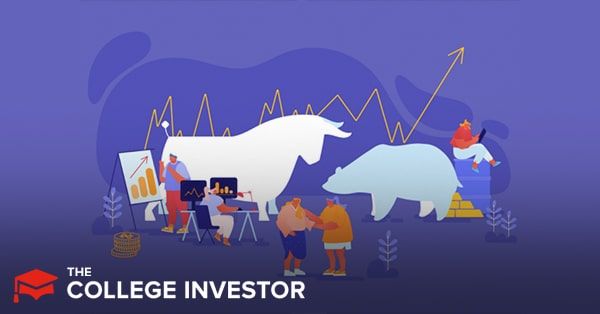
Futures trading is an investing activity typically reserved for speculators or companies that are looking to hedge against the future price of their products. However, any individual investor with a margin account can participate in futures trading.
When you buy a futures contract, you are essentially locking in the price of the underlying asset or commodity. As a seller of a futures contract, that means you have a guaranteed selling price for your goods. And, as the buyer, you have protection against price increases.
Those who trade futures can also take big advantage of small price movements in the underlying commodity or financial product by using leverage. But, like other types of investing that involve speculation and leverage, individual investors should approach futures trading with extreme caution. Here's what you need to know.
How Futures Trading Works
To see how futures trading works, we’ll use the example of a company that produces perishable goods. Let’s call them Corn Cob Inc or CCI. CCI uses the futures market to guard against a drop in the price of its corn. This is called a hedge. Rather than buying a futures contract worth CCI’s entire corn yield, it will buy enough contracts to hedge 1/4 or 1/2 of the total yield.
If corn prices fall when it's time to sell corn in the market, ½ of the company’s corn is protected through its futures contracts. While some of its corn must be sold at lower prices, CCI’s potential losses are reduced.
On the flip side, a buyer of CCI’s corn may buy futures contracts in hopes of locking in a lower price. The contract protects the buyer from the potential of corn prices increasing.
What Can Be Traded With Futures Contracts?
Futures contracts can be traded on almost anything. This includes many livestock commodities such as cattle and pork bellies, stock indexes such as the S&P 500, other commodities such as crude oil, natural gas, corn, and wheat, and precious metals such as gold and silver.
The E-mini is a very popular futures contract. It's based on the S&P 500 cash index. The E-mini was created by the CME Group in 1999. In 2019, the CME group created the Micro E-mini which is targeted at smaller retail traders.
Pure Speculation Vs. Hedging
There are two main types of futures traders - pure speculators and hedgers.
Pure speculators trade the contract just for its price movements. They have no desire to take delivery. Hedgers (also a form of speculation) may, in fact, take delivery of the physical product. Hedgers are the real companies dealing with the underlying physical product, like CCI, from our above example.
Delivery of the contract means that once the futures contract expires, you must take delivery of the underlying product. If you’re trading cattle futures and allow the contract to expire, expect a truckload full of cows to show up in your driveway. For futures contracts that are based on an underlying financial product such as a stock index, delivery comes in the form of a cash settlement.
How Futures Trading Provides Investing Leverage
To trade futures, you must have a margin account. Margin allows you to trade with higher leverage. For example, let's say you want to buy one E-mini contract (S&P 500 index). Its value is $150,000. Your account is only worth $25,000, yet you were able to buy the contract. How?
The answer is leverage. Not only did you not need to put up the entire $150,000, but you actually only needed to put up $7,500. After buying the contract, your available account cash is $17,500. Your margin on the contract is 5.00%. This means that you control $150,000 through leverage, roughly 20X leverage.
The Benefits And Dangers Of Using Leverage
To understand the power of such high leverage, we need to understand a little more about the E-mini contract. Each point in the E-mini is worth $50 and each tick is worth $12.50. A tick is equal to 0.25 points and is the smallest an E-mini contract can move.
If the current price of the S&P 500 futures is 3,000, that means one point in the E-mini controls $50 x 3,000 = $150,000. Let’s say you buy one contract when the E-mini is at 3,000 and it then goes to 3,020. You just made $1,000. But what happens if it suddenly drops to $2,980? In that case, you’ll have a loss of $1,000 (20 x $50 = $1,000).
So we see that leverage can work for you and against you. If your contract continues to fall, it will eat more margin, decreasing the value of your account. You’ll see available cash fall from $17,500 to $15,000 and continue decreasing as the market falls.
Eventually, if your account reaches zero, you’ll get a margin call. This means the broker requires you to cover the loss or they’ll close out your contract.
Related: 10 Ways To Lost Money In The Stock Market You Should Avoid
Choosing Your Contract Expiration
When you trade futures contracts, you have to choose which contract to trade (the same rule applies to options trading). Going back to the E-mini, it has four quarterly contracts — March, June, September, December.
If you're trading the March contract, you’ll need to close it out or roll into the June contract once March expiration approaches. When you go from one month to the next (while maintain your position), it's called "rolling the contract."
By watching the volume of your contract and proximity to expiration, you can tell when it's time to roll. For example, volume on the March contract will begin falling while volume on the June contract begins increasing. Before liquidity (volume) begins drying up, you’ll want to roll into the June contract.
Final Thoughts
Futures trading can be risky because of the high amount of leverage involved. It's imperative for those trading futures to monitor how much leverage they’re using and guard against over-leveraging their account (which can result in a margin call).
Most beginner investors should probably steer clear of futures trading. Index funds, ETFs, or even individual stocks would each likely be better places to start. And if you're looking to open your first brokerage account, each of these brokers offer unlimited free trading.

Robert Farrington is America’s Millennial Money Expert® and America’s Student Loan Debt Expert™, and the founder of The College Investor, a personal finance site dedicated to helping millennials escape student loan debt to start investing and building wealth for the future. You can learn more about him on the About Page or on his personal site RobertFarrington.com.
He regularly writes about investing, student loan debt, and general personal finance topics geared toward anyone wanting to earn more, get out of debt, and start building wealth for the future.
He has been quoted in major publications, including the New York Times, Wall Street Journal, Washington Post, ABC, NBC, Today, and more. He is also a regular contributor to Forbes.
Editor: Clint Proctor Reviewed by: Claire Tak
